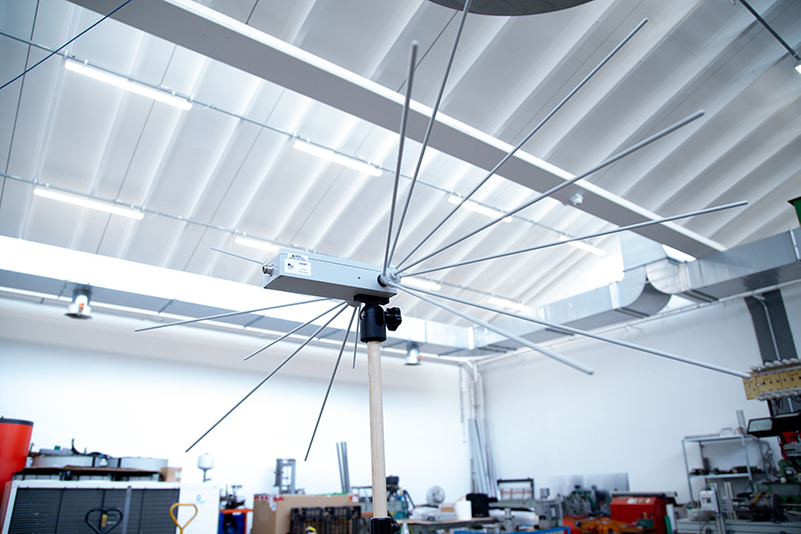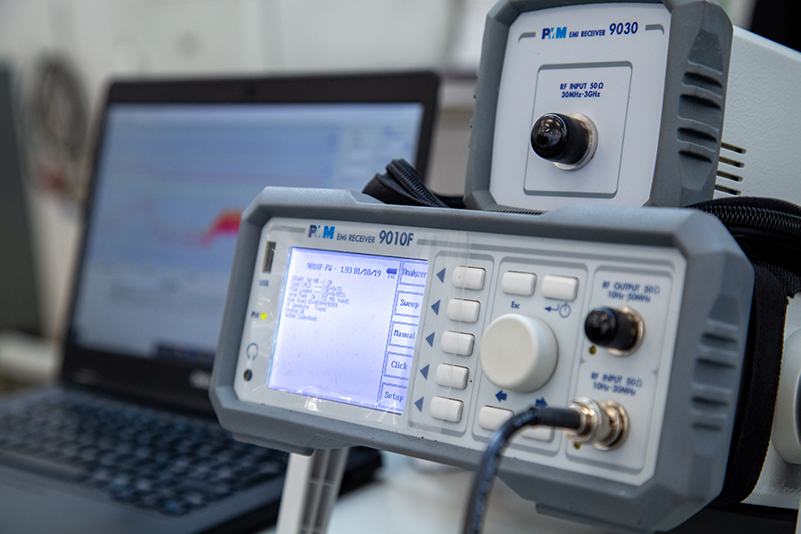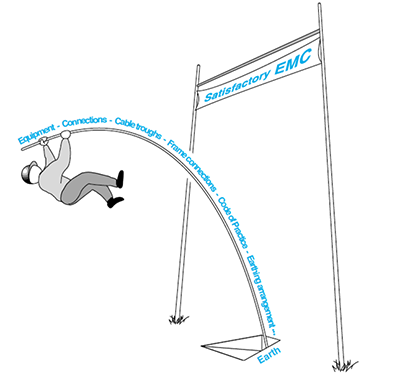Electrical equipment: updated standard EN 60204-1 ed. 6
On 27 May 2021 the new reference standard for the safety of electrical equipment of industrial machines comes into force. The focus of the update is electromagnetic compatibility, for which more stringent testing procedures are now required. AC&E supports companies that need to achieve compliance, with a targeted service, according to the specifications of the plant and the country of destination.

The EN 60204-1 standard has undergone a number of revisions over the years. The international IEC 60204-1 version was issued in October 2016, after more than 10 years of latency from the previous version. The CEN Consultant then took another two years, until September 2018, to license it as the European standard EN 60204-1 ed.6: 2018 mod, discussing and revising the text with the various national technical committees on the hotly debated topic of electromagnetic compatibility. The standard was finally published in the Official Journal of the EU last November 27, 2019 with entering into force and end of the transition period on May 27, 2021.
As Matteo Marconi, member of the Technical Committee CEI 44/5, CEI 121/B as well as AC&E’s laboratory director explains: «The focal point of discussion and profound modification of the new standard concerns electromagnetic compatibility. The IEC version of the standard reaffirms the modular approach to EMC: the system is compliant starting with switchboard components that must all comply with the specific product standard, wired and installed according to the information provided by the manufacturer. The new standard considers this modular approach for industrial machines as non-standard; it has actually been downgraded to an informative technical rule and not sufficient to give the presumption of conformity to the essential safety requirements».

This opens up new scenarios. In practice, if the modular approach cannot be used, it is necessary to proceed with EMC tests and trials also for fixed equipment and installations.
These tests, generally carried out in an anechoic chamber, become almost impossible since it is difficult for an industrial machine to be transported and installed in that chamber. This leaves the option of field testing, known as “pre-compliance” at the manufacturer’s or the end customer’s site.
 Norma EN 60204-1ed. 6: what’s new
Norma EN 60204-1ed. 6: what’s new
• Choice of electrical equipment: clarified application and coexistence with standards of the EN 61439-1 and -2 family
• New requirement in chapter 7.10: determination of the rated short-circuit current of the switchboard in accordance with EN 61439-1 IEC 60909-0, IEC/TR 60909-1 or IEC/TR 61912-1
• Specification of requirements for applications involving Power Drive Systems (PDS, VFD): clarification of the use of integrated shutdown functions such as SS1, SS2 and STO - Ch.9
• Revised and updated specific requirements for electromagnetic compatibility (EMC) Different for IEC 60204-1:2016 version.
• New terms and requirements for equipotential circuit construction
• New symbology for control devices
• Update and integration of relevant technical documentation.
Modular approach: an uneven international framework
On the subject of EMC verification, companies are now faced with a European standard that differs from the international one. Below is a summary of the global scenario.
► Australia Distribution boards EN 61439-1 recognized modular approach.
► Europe Some Type C standards specify mandatory EMC testing:
- EN 848-3 Safety of woodworking machines - Single-sided routing machines with rotating tools - Part 3: Numerically controlled boring and routing machines
- EN ISO 16090-1 Safety of machine tools - Machining centers, routers, transfer machines - Part 1: Safety requirements
- Industrial Machinery EN 60204-1 Annex H informative: it is up to the manufacturers to define which way to go and which tests to perform.
► Euroasian Union Compulsory EMC testing.
► Turkey Compulsory EMC testing (field tests).
► North America EMC requirements and tests are defined by the FCC, for industrial machines they are not mandatory (until now).
Technical support: “value added” strategy
«In AC&E - concludes Marconi - we are working at technical, scientific and regulatory level to effectively define the tests that really give added value to machines. We work to obtain safer and environmentally friendly machines by defining tests that are actually necessary, not just because they are required by a standard. AC&E provides technical support in the field thanks to the mobile laboratory equipped with EMC filters of various manufacturers and brands to find the right solution, always ensuring maximum independence of the tests».



















